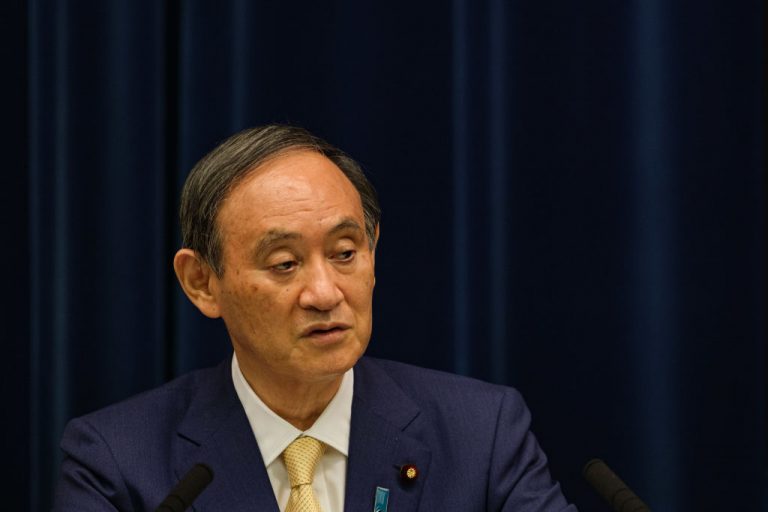On Sept. 3, Japanese Prime Minister Yoshihide Suga unexpectedly announced his resignation from office. During his one-year tenure, Suga has been blamed for inadequate response strategies to the COVID-19 pandemic. His departure comes amidst rapidly dwindling public support.
Suga’s pandemic strategy started off well; Japan was considered to be a role model on how to combat COVID-19 while also keeping society open. However, the administration’s “Go To Travel” campaign, a government-subsidized initiative to promote domestic tourism, was heavily criticized by medical experts since it was during the pandemic. Though the administration suspended the campaign, it was too late. The program is said to have contributed to the third COVID-19 wave.
Suga stepped into office last September when Shinzo Abe resigned as a result of health issues. According to Reuters, Suga’s approval ratings have dipped below 30 percent. The PM failed to capitalize on his most important accomplishment of hosting the Olympics which had been postponed for months due to COVID-19. Suga will not seek re-election as the president of the ruling Liberal Democratic Party (LDP).
“I want to focus on coronavirus response, so I told the LDP executive meeting that I’ve decided not to run in the party leadership race… I judged that I cannot juggle both and I should concentrate on either of them,” Suga told reporters. The party will be choosing a new leader who will become the Prime Minister of Japan. Suga will remain in position until Sept. 29 when the LDP will elect its successor.
The most likely candidate for the job is believed to be Taro Kono, the minister responsible for Japan’s vaccination rollout. A former minister of defense and foreign affairs, Kono enjoys some level of fame. He has a following of 2.3 million on Twitter and is popular among the youth.
Success
You are now signed up for our newsletter
Success
Check your email to complete sign up
Kono’s popularity is atypical since Japanese politics is generally dominated by older men who are not social media-savvy. Former LDP policy chief Fumio Kishida and Sanae Takaichi, former Internal Affairs Minister, are other contenders for the top office.
The general elections are slated to be held this year. According to Nikkei Asia, there are a couple of scenarios on how this might play out. One possibility is to hold the elections prior to Oct. 21, when the terms for the existing lower house lawmakers will end.
The second option would be to have the proposed LDP prime ministerial candidate hold an extraordinary Diet session and dissolve the parliament in October. This will allow the current terms to end and push the election date to Nov. 28 at the latest.
The LDP’s win will also have a positive impact on the economy according to some experts.
“Stock prices are rising based on a view that the chance of LDP’s defeat in the general election has diminished because anyone other than Suga will be able to regain popularity,” Toru Suehiro, senior economist at Daiwa Securities, stated. After Suga’s resignation announcement, the Nikkei Stock Average jumped 500 points or 1.8 percent, which was its highest intraday surge in more than two months.















